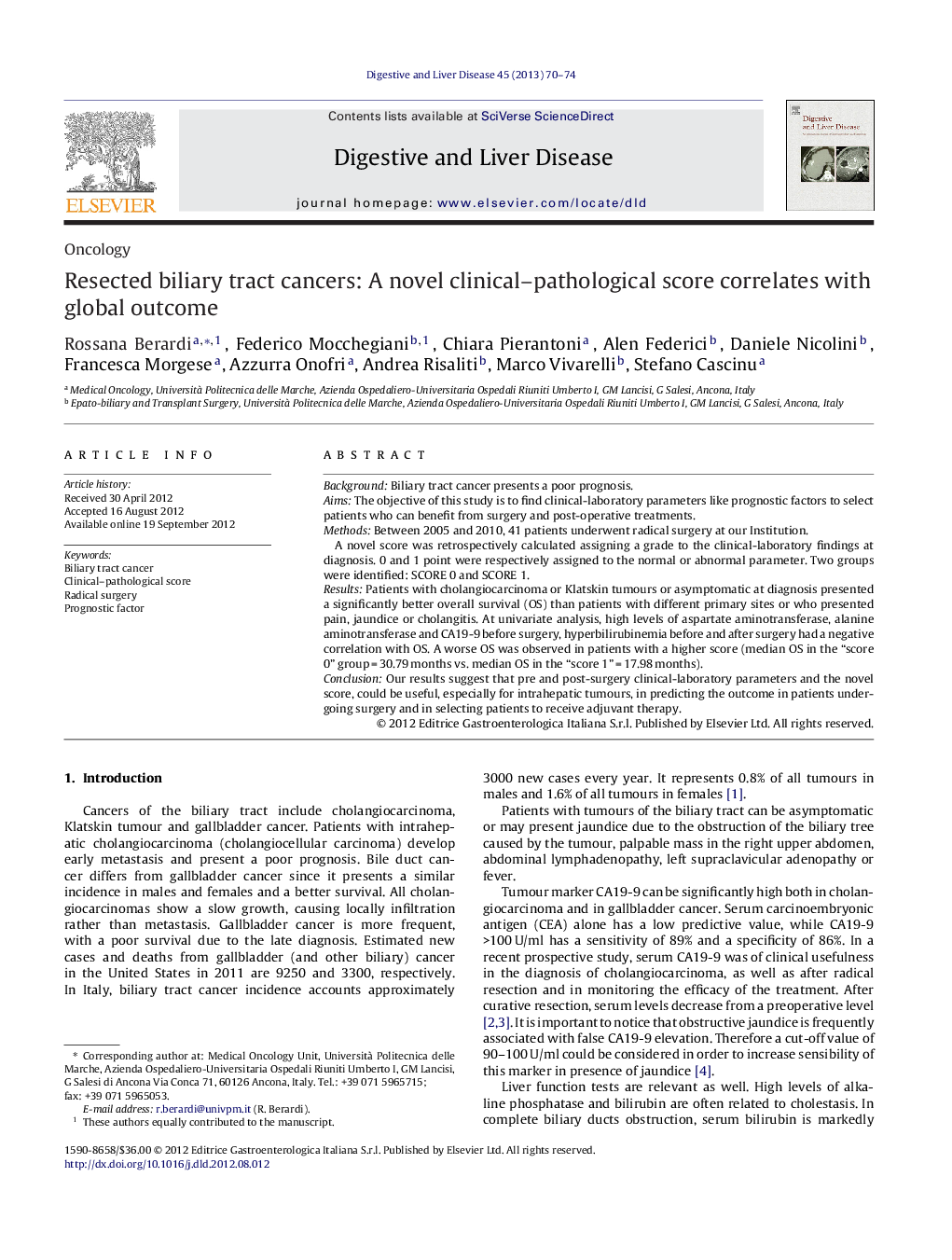| Article ID | Journal | Published Year | Pages | File Type |
|---|---|---|---|---|
| 3263047 | Digestive and Liver Disease | 2013 | 5 Pages |
BackgroundBiliary tract cancer presents a poor prognosis.AimsThe objective of this study is to find clinical-laboratory parameters like prognostic factors to select patients who can benefit from surgery and post-operative treatments.MethodsBetween 2005 and 2010, 41 patients underwent radical surgery at our Institution.A novel score was retrospectively calculated assigning a grade to the clinical-laboratory findings at diagnosis. 0 and 1 point were respectively assigned to the normal or abnormal parameter. Two groups were identified: SCORE 0 and SCORE 1.ResultsPatients with cholangiocarcinoma or Klatskin tumours or asymptomatic at diagnosis presented a significantly better overall survival (OS) than patients with different primary sites or who presented pain, jaundice or cholangitis. At univariate analysis, high levels of aspartate aminotransferase, alanine aminotransferase and CA19-9 before surgery, hyperbilirubinemia before and after surgery had a negative correlation with OS. A worse OS was observed in patients with a higher score (median OS in the “score 0” group = 30.79 months vs. median OS in the “score 1” = 17.98 months).ConclusionOur results suggest that pre and post-surgery clinical-laboratory parameters and the novel score, could be useful, especially for intrahepatic tumours, in predicting the outcome in patients undergoing surgery and in selecting patients to receive adjuvant therapy.
